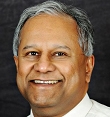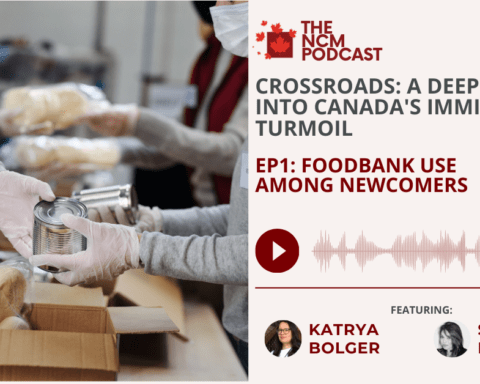The United Nations Special Rapporteur on human rights in Iran will be visiting Canada and the U.S. to gather information from the diaspora on suspected violations.
Ahmed Shaheed, a former foreign minister of the Maldives, will meet victims and witnesses of these alleged incidents and civil society organizations during his 14-day trip from July 14 to 28.
The result of these findings will be reflected in his report to the General Assembly in October, the Office of the UN Human Rights Commissioner said Wednesday. Shaheed has not been able to visit Iran since his appointment in August 2011 despite several requests to the government. However, he expressed hope that there will be new opportunities for dialogue with the administration of President-elect Hasan Rohani and reiterated his continued interest to visit the country.
The Irish gathering
Talking of visits, the Irish government is in the midst of a year-long attempt to lure its diaspora home to boost the country’s battered economy. Billed as The Gathering, the initiative is made up of gatherings in villages, towns and cities and ranging from the cultural and historic to the sporting, the quirky and the poignant.
“Bring them home. Treat them well. The Gathering is ‘Project Ireland.’ Do your bit,” Taoiseach (Prime Minister) Enda Kenny exhorted fellow countrymen and women when the initiative was launched earlier in the year. Over 70 million people worldwide claim Irish ancestry, more than 13 times the population of the country itself. The Irish are the fourth largest ethnic group in Canada according to the 2006 census — about 14 per cent of the total population or 4.4 million people.
That Ireland seems be handling its diaspora well was evident when Jamaican-owned businesses abroad wanted their home government to learn from the Irish.
The spokesperson for the United Kingdom Diaspora Business Group, Denis St Bernard, wanted Jamaica to adopt the Irish and Finnish enterprise model through which these governments helping their small and medium-size enterprise (SME) owners abroad.
St Bernard said while Jamaican businesses based at home would find it difficult to tap markets such as Toronto, New York and London, Jamaican-owned and -operated businesses already established in these markets have better access. Hence, it would make more sense for the government to help them to boost export, he said.
Saying he was not calling for the abandonment of local SMEs, St Bernard said he was merely pointing out the huge earning potential of the more than seven million Jamaicans living abroad.
The Nigerian diaspora, meanwhile, seemed to do better than the Irish by not just pumping in tourist dollars. The money they sent in was almost thrice the Foreign Direct Investment (FDI) last year, Minister of Information Labaran Maku said.
Speaking in Atlanta, Georgia, Maku said while FDI amounted to $8 billion, remittances totalled about $22 billion.
The minister urged the diaspora to invest in the country and listed power, mining, agriculture and the railways as some of the sectors with high potential. He noted that Nigeria had become the leading investment destination in Africa and said the diaspora could link up with companies in their host countries to invest at home.
Indonesians want dual nationality
On the same note of contributing to national development, the Indonesian diaspora wants a favour from the home country.
It wants dual nationality and plans to set up a task force at its second congress on August 18 – 20 in Jakarta to plead with the government and parliament.
Chief of Diaspora Desk in the Foreign Affairs Ministry Wahid Supriyadi said Wednesday that the government could get some advantages, especially increased FDI by granting dual citizenship to its diaspora. “Countries that provide dual nationality or other facilities for the diaspora have enjoyed lots of benefit” he said.
Supriyadi said 31 countries provide dual nationality for their diaspora and have benefited from overseas remittances.
Indonesia has an estimated 8-10 million diaspora around the world but could only attract about $7.2 billion in remittances. The figure is even smaller than that of Vietnam, which, according to Supriyadi, is a “beginner in diaspora networking.” Vietnam receives about $10 billion in remittances per year, he said and wanted Indonesia to study efforts made by India and China in harnessing their diasporas.
Preferred drug mules
While Indonesia wants to network better with its diaspora, its neighbour to the east and a past master in sending its sons and daughters abroad in search of work is feeling the negative heat of its debatable success.
Narcotics syndicates prefer Filipinos to transport illegal drugs for them because many of them go abroad to work, Justice Secretary Leila De Lima said after a 35-year-old Filipina drug mule was executed in China last week. The execution brought to five the number of Filipinos put to death in China for drug trafficking since 2011.
Noting that there are currently about 10 million Filipinos overseas, Ms. De Lima said the Philippines was keen on global advocacy against the death penalty “because some of our countrymen are put in that kind of situation and happen to be in countries where the death penalty is imposed.”
In another blow to the diaspora, Zimbabwe has decided to do away with postal votes for its citizens abroad in the upcoming elections. The Constitutional Court threw out a case filed by an exiled Zimbabwean trying to secure the diaspora vote.
Fear and mistrust of the diaspora seems to cloud the judgement of Zimbabwean leaders and institutions. It was evident when South Africa-based businessman Mutumwa Mawere’s presidential candidature was turned down through a technicality. Earlier, Mawere had won a landmark case on dual citizenship. Some in the diaspora who feel marginalised have now grouped together to form Zimbabwe Yes We Can, an apolitical pressure group based in the UK.
‘Lebanon’s salvation’
Staying on the political note, Maronite Patriarch Beshara Rai has said Lebanon’s diaspora is its “salvation.”
At the launch in Beirut last month of a book on the diaspora by Antoine Labaki, the patriarch said “Lebanon’s salvation comes from its diaspora,” as those outside the country rejected the paralysis of political life in their homeland.
“Lebanese [outside Lebanon] are experiencing in their [host] countries how laws and state institutions are respected, and are not subject – like here – to the impact of influential politicians, who violate laws and block the work of institutions, and cover up violations by their supporters,” Rai said according to Lebanon’sDaily Star newspaper.
“They are aware of the value of the judiciary and the law, which should be above everyone … there is no place for the impact of influential politicians, as we saw recently here,” the patriarch said, in what was likely a reference to the inability of the Constitutional Court to convene to issue a ruling on challenges to parliament’s extension of its mandate.
Elections in Sri Lanka’s north
Talking of mandates, the provincial council election in Sri Lanka’s Tamil-dominated north will be held in September as planned with President Mahinda Rajapaksa giving his go ahead.
The election is seen as crucial for the country’s reconciliation with its Tamil minority since the end of a brutal three-decade-long civil war in 2009 when government troops finally crushed LTTE rebels fighting for a separate homeland. The vote is the first since the eastern province was delinked from the north in 2006.
Rajapaksa’s proclamation came as his younger brother Basil Rajapaksa was meeting senior Indian officials in New Delhi on the government’s plans to amend the 13th amendment to the constitution that will strip from the northern provincial council its control over land and the police force.
The opposition Tamil and Muslim minority parties are objecting to the amendments, saying they violate the powers conferred on devolved provincial administrations by the 1987 India-Sri Lanka Accord.
Nearer home, for the first time in its 26-year history, the FeTNA (Federation of Tamil Sangams of North America) held its first convention outside the U.S. in Toronto last week. With more than 250,000 Tamils calling the Greater Toronto Area home, the convention was a one-stop shop to experience all aspects of this diaspora’s culture.– New Canadian Media
Ranjit is a Toronto-based writer with interest in Canadian civic affairs, immigration, the environment and motoring. Maytree and Al Jazzera English alumnus.





